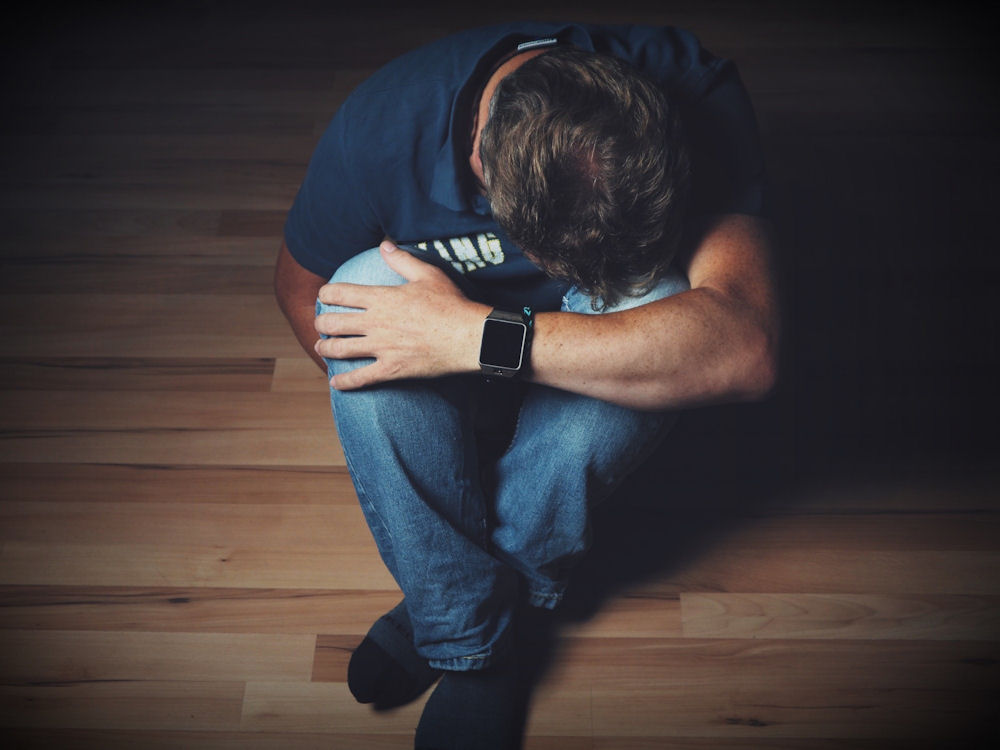The Link Between Sleep and Recovery: Navigating Addiction’s Impact
When it comes to substance use, recognizing the line between dependence and addiction can be challenging, but it’s an essential part of understanding the road to recovery. According to the National Institute on Drug Abuse, 46.3 million Americans aged 12 and older met the criteria for a substance use disorder in 2021, highlighting the pressing need for effective addiction treatment. If you or someone you care about is navigating the complexities of substance use, understanding this distinction can help chart a clearer path forward.
At Immersive Recovery in Encinitas, California, we specialize in compassionate care, offering detox, outpatient programs, and dual diagnosis treatment to guide individuals toward lasting recovery.
Recovery isn’t just about breaking patterns of use but also rebuilding health and resilience, which is why sleep plays such a vital role. Research shows that quality sleep is a key factor in restoring physical and mental well-being during addiction recovery. This blog will explore how to differentiate dependence from addiction, why identifying the difference is critical, and how factors like proper rest can support a successful healing process.
Understanding Sleep and Its Importance

Sleep is not just a time for rest; it is a complex biological process that is essential for physical and mental well-being. During sleep, the body undergoes various restorative processes, including muscle repair, memory consolidation, and hormone regulation. These processes are vital for anyone, but they become even more crucial for individuals in recovery. Sleep plays a pivotal role in the healing journey, as it allows the mind and body to reset and rejuvenate, preparing individuals to face the challenges of recovery with renewed strength and clarity.
The quality of sleep can significantly influence an individual’s motivation and energy levels throughout the day. When sleep is compromised, it can lead to fatigue, irritability, and difficulty concentrating, which can hinder progress in recovery.
The Stages of Sleep
Sleep consists of several stages, including REM (Rapid Eye Movement) and non-REM sleep. Each stage serves a unique purpose. Non-REM sleep is when the body repairs itself, while REM sleep is crucial for emotional regulation and cognitive functions.
A balanced sleep cycle allows the brain to process experiences and emotions, which is particularly important for those recovering from addiction. During non-REM sleep, the body engages in critical functions such as tissue growth and repair, immune system strengthening, and energy restoration. In contrast, REM sleep is characterized by heightened brain activity, which is essential for dreaming and processing memories, allowing individuals to integrate their experiences and emotions more effectively.
Disruptions in the sleep cycle can lead to a phenomenon known as sleep inertia, where individuals feel groggy and disoriented upon waking. This can be particularly detrimental for those in recovery, as it may affect their ability to engage in therapeutic activities or maintain social connections. By understanding the stages of sleep and their significance, individuals can take proactive steps to enhance their sleep quality, such as practicing relaxation techniques or engaging in regular physical activity, which can promote deeper, more restorative sleep.
How Sleep Affects Mental Health
Research shows a strong connection between sleep and mental health. Poor sleep can exacerbate conditions like anxiety and depression, which are often co-occurring issues for those recovering from addiction. Conversely, good sleep can enhance mood, improve cognitive function, and increase resilience against stress. For individuals in recovery, achieving quality sleep can be a significant step toward emotional stability.
Studies have indicated that individuals who prioritize sleep often report lower levels of stress and anxiety, as well as improved emotional regulation, which can be crucial in navigating the ups and downs of recovery.
Additionally, the relationship between sleep and mental health is bidirectional, meaning not only can poor sleep lead to mental health challenges, but mental health issues can also disrupt sleep patterns. This cycle can be particularly challenging for those in recovery, as they may find themselves caught in a loop of insomnia and anxiety. Implementing effective sleep strategies, such as cognitive behavioral therapy for insomnia (CBT-I), mindfulness practices, and relaxation techniques, can help break this cycle and foster a healthier sleep environment. By addressing sleep issues head-on, individuals can significantly improve their overall mental health and enhance their chances of successful recovery.
The Impact of Addiction on Sleep Patterns
Addiction can severely disrupt sleep patterns. Substances like alcohol, opioids, and stimulants can alter the natural sleep cycle, leading to insomnia, nightmares, or excessive sleepiness. This disruption can create a vicious cycle, where poor sleep increases cravings for substances, making recovery even more challenging.
Common Sleep Disorders in Recovery
Many individuals in recovery experience sleep disorders, such as insomnia or sleep apnea. Insomnia is characterized by difficulty falling or staying asleep, while sleep apnea involves interrupted breathing during sleep. Both conditions can hinder recovery efforts by increasing fatigue and reducing overall well-being.
The Role of Withdrawal Symptoms
Withdrawal from addictive substances can also lead to sleep disturbances. Symptoms such as anxiety, restlessness, and physical discomfort can make it difficult to relax and fall asleep. Understanding these symptoms is crucial for individuals in recovery, as they can anticipate and address sleep issues as part of their healing process.
Strategies for Improving Sleep in Recovery
Improving sleep quality is a vital component of addiction recovery. There are several strategies that individuals can implement to enhance their sleep hygiene and overall well-being.
Establishing a Sleep Routine
Creating a consistent sleep schedule can significantly improve sleep quality. Going to bed and waking up at the same time each day helps regulate the body’s internal clock. This routine signals to the body when it is time to sleep, making it easier to fall asleep and wake up refreshed.
Creating a Sleep-Conducive Environment
The sleep environment plays a crucial role in promoting restful sleep. A dark, quiet, and cool room can enhance sleep quality. Consider using blackout curtains, earplugs, or white noise machines to create an ideal sleeping environment. Additionally, removing electronic devices from the bedroom can help reduce distractions and promote relaxation.
Mindfulness and Relaxation Techniques
Incorporating mindfulness and relaxation techniques into a nightly routine can help calm the mind and prepare the body for sleep. Practices such as deep breathing, meditation, or gentle yoga can reduce anxiety and stress, making it easier to transition into sleep. These techniques can be particularly beneficial for individuals in recovery who may experience heightened stress levels.
The Connection Between Nutrition and Sleep

Nutrition plays a significant role in sleep quality. The foods consumed during the day can impact how well one sleeps at night. A balanced diet rich in whole foods, including fruits, vegetables, whole grains, and lean proteins, can promote better sleep.
Foods to Promote Sleep
Certain foods are known to support sleep. Foods rich in magnesium, such as nuts and leafy greens, can help relax muscles and promote sleep. Additionally, foods containing tryptophan, like turkey and bananas, can enhance the production of serotonin and melatonin, hormones that regulate sleep. Incorporating these foods into the diet can be a simple yet effective way to improve sleep quality.
Avoiding Sleep Disruptors
On the flip side, some foods and substances can disrupt sleep. Caffeine, found in coffee and many sodas, can interfere with the ability to fall asleep. Similarly, large meals or spicy foods close to bedtime can cause discomfort and disrupt sleep. Being mindful of what is consumed, especially in the hours leading up to bedtime, can help foster better sleep.
The Role of Exercise in Sleep and Recovery
Regular physical activity is another essential factor in improving sleep quality. Exercise has numerous benefits for both physical and mental health, and it can significantly impact sleep patterns.
How Exercise Affects Sleep Quality
Engaging in regular exercise can help individuals fall asleep faster and enjoy deeper sleep. Physical activity increases the production of endorphins, which can enhance mood and reduce stress. Additionally, exercise can help regulate the body’s circadian rhythm, making it easier to maintain a healthy sleep schedule.
Finding the Right Balance
While exercise is beneficial, it is essential to find the right balance. Intense workouts close to bedtime can have the opposite effect, making it harder to wind down. It is generally recommended to schedule exercise earlier in the day to maximize its sleep-promoting benefits.
Seeking Professional Help
For some individuals, sleep disturbances may require professional intervention. Consulting with a healthcare provider or sleep specialist can provide valuable insights and tailored strategies to address sleep issues.
Therapeutic Approaches
Therapeutic approaches, such as cognitive-behavioral therapy for insomnia (CBT-I), can be particularly effective in treating sleep disorders. This therapy focuses on changing negative thought patterns and behaviors related to sleep, helping individuals develop healthier sleep habits.
Medication Considerations
In some cases, medication may be prescribed to help manage sleep disturbances. However, it is crucial to approach medication with caution, especially in the context of addiction recovery. Consulting with a healthcare professional can ensure that any prescribed medications are safe and appropriate for the individual’s recovery journey.
The Path to Healing

Understanding the difference between dependence and addiction is a crucial step toward making informed decisions about seeking help. Recognizing these distinctions empowers individuals to address their challenges and pursue the right level of care for lasting recovery. At Immersive Recovery in Encinitas, CA, we offer a full spectrum of support, from detox to outpatient and dual diagnosis treatment, designed to meet each person’s unique needs.
If you or someone you love is struggling, know that recovery is possible. Take the first step today by reaching out to Immersive Recovery’s men’s rehab in California; we’re here to guide you on your path to healing.





